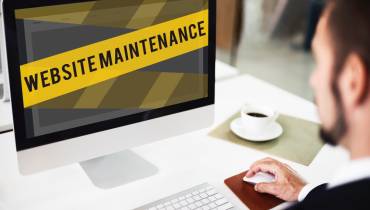How to Protect Your Savings from Inflation

As you may well know, inflation can be quite unpleasant for anyone. To save your nerves and maintain your mental health, you should protect your money from inflation.
Inflation is simply a decrease in the purchasing power of money, reflected in a general increase in the prices of goods and services in an economy.
Here’re some of the best options you can take to protect your money and savings from inflation:
1. Put Your Money in Bonds
Bonds or debt securities allow the lender to receive a stable cash flow in the form of interest, usually payable at fixed intervals.
Putting your money in bonds refers to the process of lending your money to a borrower such as a company or government with the promise of a small reward/interest on return of the principal of the bond. That is, the issuer, having borrowed a certain amount of money from the creditor, returns the required amount and coupon income within the appointed period.
Bonds can be issued by both the state and a private company. The U.S. Treasury and Federal Reserve, for example, would be more than happy to take your funds and issue you bond securities in return.
Bonds have some risks and are vulnerable to rising interest rates. The borrower must repay what they owe, but sometimes may not be able to. It may thus be safer to use state-owned companies, since in the event of a default, you are more likely to get your money back.
2. Store Your Money in Precious Metals

Precious metals have an incredible stability and a certain security in our world. Gold, for example, tends to become more expensive every year, which increases its value.
Jewelry made from precious metal or precious stones also have a high market value. Thus, it is usually better to store your money in jewelry, gold, and other precious metals to protect your money and saving from inflation.
An undoubted reality that can be considered here is the fact that during periods of crisis, investors tend to more actively purchase valuable metal and precious stones than shares.
Of course, there are some disadvantages in storing savings in gold you should consider. For example, gold bars cannot be instantly sold on the market and exchanged for money.
3. Invest Your Money in the Financial Markets or Stocks
You can also invest your money in the financial markets or in stocks (the shares that represents the ownership of a fraction of a large well-known company) to provide you with a financial lifeboat.
A financial market is essentially a marketplace where people trade financial securities and derivatives at low transaction costs, including stocks and bonds, raw materials, and precious metals, which are collectively known in the financial markets as commodities.
By putting your money in at least one of the two options, you can literally become one of the co-owners of a multinational corporation. Profit in this case can be obtained in two ways:
- Through dividends. Companies distribute their profits to shareholders annually. How much money will be distributed is decided at a general meeting of shareholders.
- Through stock trading. The value of a stock is volatile. It is influenced by many factors, mainly the overall stock market index that indicates performance growth or fall of companies.
To reduce existing risks, buy not one, but several shares of different companies. The principle “buy cheaper, goodbye more expensive” may be useful here.
And avoid investing large sums at once. Think about the risks. It is better starting with small investments because any loss then may not be too great for you.
Besure to check the characteristics and performance of the companies with which you want to invest in. Analyze their financial statements, reputation, brand image, background, products, and more.
If you find you need expert advice and help to research a company and it's prospects, don’t hesitate to ask for help from experts or sites that specialize in this to analyze stocks and the financial markets.
You should always ensure you know exactly what you are getting into before investing your savings.
4. Invest Your Money in NFTs
You can also protect your money and savings from inflation by investing in non-fungible tokens (NFTs). NFTs have emerged as a fairly new and potentially solid investment asset class that’s poised to become a standard feature of investment portfolios within a few years.
An NFT is basically a digital asset (can be an image, audio clip, or GIF) whose ownership is recorded on a tamper-proof digital ledger known as a blockchain. NFTs have been taking over the art world and represent a truly unique opportunity to spend and store your money.
An NFT gains more of its own character and value as time goes by, based on factors like who's owned it and how they've used it, which can be significant when investing in the digital assets.
Online NFT marketplaces like dVGems and OpenSea (the Amazon of NFTs) allow people to easily create, sell, and buy NFTs. You can buy and sell financial security consisting of NFT art and collectibles on the marketplaces to protect your money from inflation.
However, keep in mind that an NFT has value because the buyer and their community believe it has value—which is true for all art and collectibles.
Investments that Are Unlikely to Protect Your Money from Inflation
Contrary to what you might think, some popular and common investment options may not necessarily protect your money and savings from inflation, including:
1. Investing in commercial and residential real estate for rent.
It is important to be careful with capital intensive and expensive investment projects like real estate that may actually be heavily impacted by inflation.
Of course, this will depend to some extent on the type of property and where it is located. Still, it is important to consider inflation statistics before investing in real estate.
2. Starting a business.
Although it seems promising, and is more often than not a good idea, investing your savings in a new business may not protect your money from inflation.
Starting your own business at a time when the economy is unstable and the purchasing power of money is very low may not always be a good idea.
Purchasing power is important because, all else being equal, inflation decreases the number of goods or services you would be able to buy, thus impacting your eventual profits as well.
So, if possible, you should probably target an opportune time when the economy is relatively stable and inflation is low. Then, with patience, caution, and sharp focus, launch your business
3. Depositing your money in the bank.
It would seem that if you simply make a deposit of your savings in a bank, your money would be safe. But that is not totally true. Banks are not foolproof to inflation.
In fact, some banks actually fold and close shop with people’s money during economic tough times or under the heavy weight of inflation.
Banks can save your money, but that money can just as well be affected by inflation, and you will feel the impact of it when you withdraw the money.
More Tips to Protect Your Money and Savings from Inflation

There are two more specific tips you will find useful to protect your savings:
- Learn to hoard wisely. It is always worth having some money in reserve. This does not mean that you should hoard unreasonably, but it is always worth saving.
- Be financially literate. It is important to not only learn how to manage your finances, but also how to correctly analyze what is happening around the economic world. It doesn’t matter if you are a businessman or a layman, it helps to know about the financial trends and economic realities around the world.
Conclusion
Inflation is part of economic realities, which means it will always occur with some degree of frequency. But if you know how to properly invest your money and protect your savings, you will be able to overcome and withstand the perils of inflation without undue pain.





















